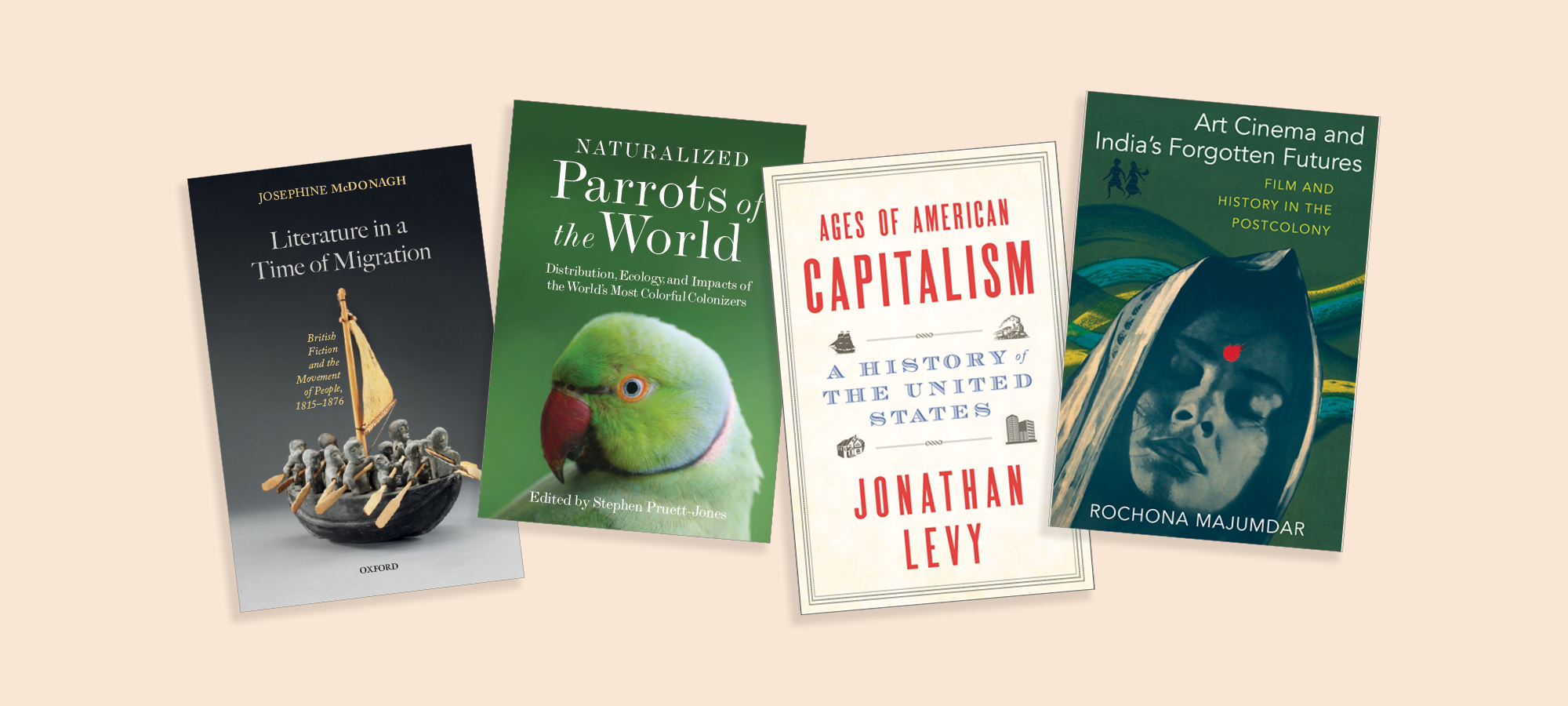
A selection of recent books by UChicago faculty members.
Literature in a Time of Migration: British Fiction and the Movement of People, 1815–1876
By Josephine McDonagh, George M. Pullman Professor in the Department of English Language and Literature
A chapter on Sir Walter Scott opens Josephine McDonagh’s book examining how greater human mobility around the globe was reflected and thought about in 19th-century British novels. In Guy Mannering (1815), Scott gave part of his narrative a backstory set in India, invented the itinerant Meg Merrilies, and in other ways raised questions of transience, place, and belonging. As the century progressed and colonial emigration became an ever more familiar and scrutinized practice, Britain’s fiction writers showed a keen awareness of and engagement with the meaning of such movement. Charlotte Brontë, Charles Dickens, and George Eliot get their turns under McDonagh’s lens, alongside less canonical writers.—L. D.
Naturalized Parrots of the World: Distribution, Ecology, and Impacts of the World’s Most Colorful Colonizers
Edited by Stephen Pruett-Jones, Associate Professor of Ecology and Evolution
Human activity has helped parrots become the planet’s most widely distributed group of birds. Of the 380 or so known parrot species, about 330 have been taken outside their native countries and at least 75 have established breeding populations in those new places by escaping or through intentional release. This volume edited by Stephen Pruett-Jones is the first devoted to naturalized parrots and the issues raised by their finding new places to call home. The book’s contributors consider genetics, ecological implications, wildlife management questions, and more. Two chapters present case studies of species that have thrived in new habitats: the rose-ringed parakeet in several warm-weather US states and the monk parakeet familiar to Chicago residents.—L. D.
Ages of American Capitalism: A History of the United States
By Jonathan Levy, AM’03, PhD’08, Professor in the Department of History and the John U. Nef Committee on Social Thought
Commerce (1660–1860), capital (1860–1932), control (1932–1980), chaos (1980–present): these are the four stages of US capitalism that Jonathan Levy delineates in his comprehensive one-volume economic history of the United States. Each stage of capitalism, in Levy’s telling, marks a shift in the relationship between government and financial markets, with political actors increasingly exerting their influence. Building on ideas from a course Levy teaches at UChicago, Ages of American Capitalism demonstrates the evolution of a system that is virtually synonymous with the United States but facing a crisis in the current “age of chaos.” Far from solely economic, the story Levy tells implicates the United States’ legal system, culture, society—and especially its politics.—L. D.
Art Cinema and India’s Forgotten Futures: Film and History in the Postcolony
By Rochona Majumdar, PhD’03, Associate Professor of South Asian Languages and Civilizations and Cinema and Media Studies
Following the upheaval of partition in 1947, film in newly independent India took on a pedagogical role. The on-screen future portrayed the progress of a modern nation, and these “good films” were a means of creating “good and discerning citizen subjects.” Rochona Majumdar recounts this postindependence history before turning to the postcolonial disillusionment of Satyajit Ray, Mrinal Sen, and Ritwik Ghatak in the 1960s. Exploring trilogies by the three art cinema filmmakers, she examines how they moved away from the prevailing narrative of modernization to reveal an India with “multiple and contradictory futures”—anticipating similar shifts that occurred in the 1990s in historians’ understanding of the postcolonial period.—R. L. S.
